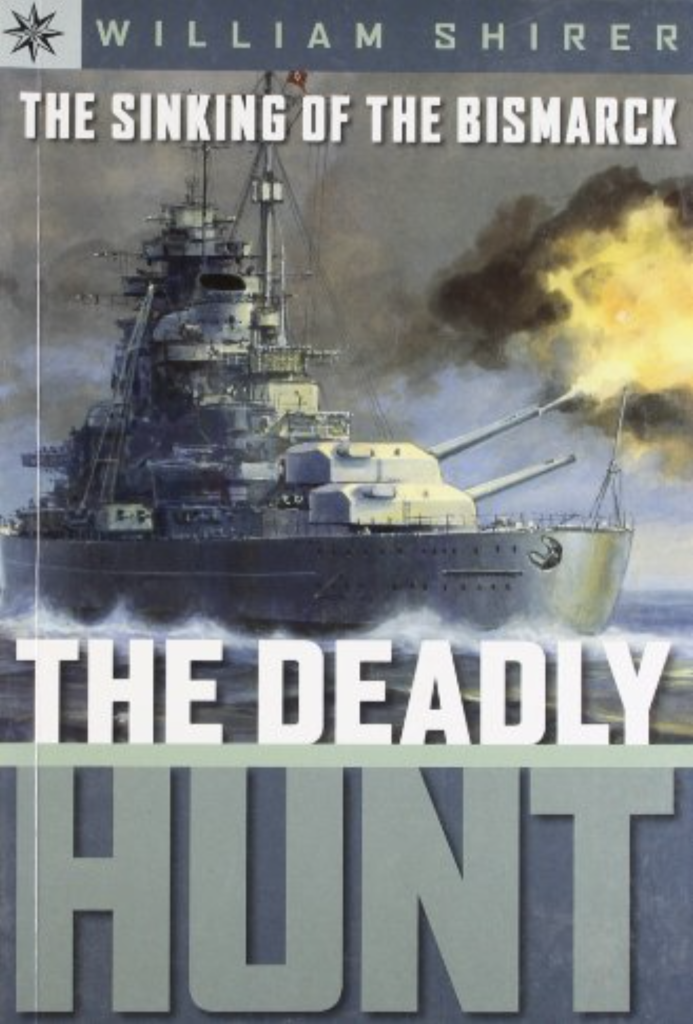I have been collecting Landmark Books for at least ten years. This year I was finally able to very nearly complete my collection. I have a few only in paperback, two that I won’t have in my library, and one that I cannot find in any format at all anywhere. (United Nations, I am looking at you!) Now that I have a nearly complete collection of these amazing books, I realize how few I had actually read over the years. I am going to change that.
Like many of you, I simply do not have much “extra” reading time. My time is gobbled up by so many projects and clubs. But, if something is in audio, I am usually able to find a way to squeeze it in. Lo and behold, a number of the Landmark books are available in audio. And, one or two more get recorded every couple of years. At one time we had a list on our site indicating which ones we had found. But we found that list was hard to maintain due to the fluctuations in media contracts. Our good friends at Biblioguides, however, have made it their mission to keep those books up to date with reprints and audio options. I decided to purchase every Landmark audio I could find. I went to Biblioguides and used their links to source all of those books. Many of the audios are Sterling Point book reprints.

I have been doing a fair amount of WWII reading of late, so I decided to start with The Sinking of the Bismarck by William Shirer, because I really appreciated his The Rise and Fall of Adolf Hitler Landmark book. That story of Hitler was chilling and gutting. Shirer was a wartime correspondent embedded in Germany during the war. His account reads like an exciting spy novel. If only it weren’t so awfully, tragically true.
I understood that a book about a sea battle would have to read differently from the Hitler story, but I wasn’t prepared for how differently. In the case of the Hitler book, Shirer’s book is a reduction of a much longer and more complex adult book on the same subject. Shirer was there. He witnessed the crowds, he felt the energy, and he saw Hitler for himself.
In The Sinking of the Bismarck, he used his journalistic talents to study the declassified reports, comb through personal accounts, and harvest the best information from the time. Instead of telling the story of an interested observer as he did in Hitler, he re-creates the story with the enthusiasm of a patriot who is proud and excited about an epic victory at sea. And, while he clearly is on the side of the Allies, he does have some sympathy and understanding for the men in German boats who were simply doing their duty. In this way, we get an exciting page-turner that leaves the reader inspired and in awe.
Nothing went right. Until, through a combination of sheer determination and uncanny good luck, the Allies were able to sink the most important ship in the German navy. Failure to win this battle would probably have cost us the war. And one devastating error after another almost guaranteed the victory to the Germans. Only God knows how this came out right in the end. But, by His grace, it did.
I have read a good number of military books. And, I have read some books set in the seas. However, I don’t think that I have read very many books about modern ships in modern warfare. This one was fascinating to me. When I think of the D-Day Landmark book, my brain understands the peril. I can visualize men trying to find cover on a beach. I can imagine heroes climbing the grass walls on the edge of Normandy. I can see bullets shooting men as they climb out of ships that are landing just off the beach.
What I cannot intuitively imagine are multiple ships in pursuit of each other, at night, intentionally trying to hide their identity, while planes are trying to bomb them. Oh yeah, and those same planes are trying to land on the Allied ships. Again, at night, while it is cloudy, without ever having practiced that yet. And the ships are disoriented and calling in the wrong locations because they have lost their bearings. I feel seasick just trying to think about it. And yet, this is exactly what happened. And the men on those ships had to fight through one devastating mistake after another for days!
This book gave me a new appreciation for the perilous work of our Navy. I felt so powerless as I read this one. I felt like I was on the ship and I just wanted to get off! The writing is excellent! And the story is heroic! And, the narrator for the audio of this one is incredible.
This is easily one of my favorite Landmark books! And, because it was reprinted by Sterling Books, it isn’t terribly hard to find. No WWII study is complete without this one!
Here is a link to this book on Biblioguides.